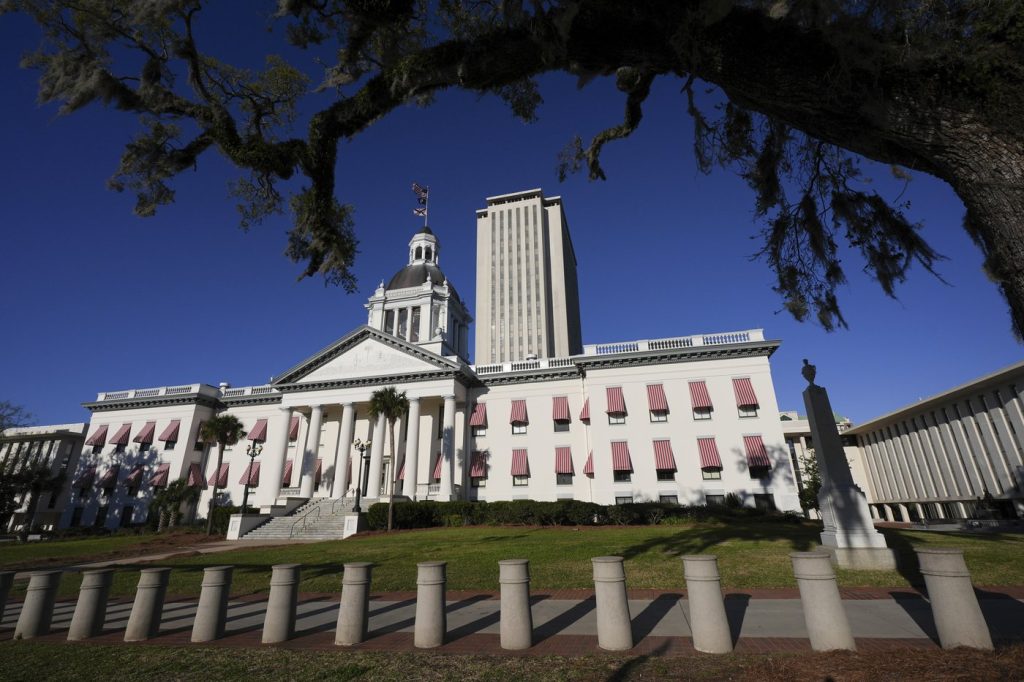Citizen activists aiming to place initiatives on ballots in several U.S. states are facing new challenges, including stricter literacy requirements and more stringent regulations. These laws are being introduced during a time when majority public sentiment seems to lean toward expanding democratic participation globally, contrasting with developments in the U.S. that appear to limit direct democracy.
In Arkansas, a newly enacted law mandates that ballot titles must be written at or below an eighth-grade reading level. Additionally, canvassers are required to confirm that petition signers either read the title themselves or had it read aloud to them. Meanwhile, South Dakota now requires petition titles to be printed in 14-point type on the front page and 16-point type on the back, where signers typically add their names.
The situation is compounded in Florida, where individuals gathering more than 25 signatures outside their family must register with the state. Failure to comply can lead to felony charges, carrying a penalty of up to five years in prison. Consequently, around 40 bills that impose restrictions or alterations on the citizen initiative process have been introduced or passed in legislative chambers across approximately a dozen states this year.
Advocates are expressing concern over this trend, as many fear it threatens their means of grassroots activism. Dane Waters, chair of the Initiative and Referendum Institute at the University of Southern California, commented on the contraction of direct democracy in the U.S., emphasizing the tension between lawmakers and voters. He explained that elected officials often view the initiative process as a challenge to their authority, prompting efforts to limit it.
Many restrictions target petition canvassers. With the need for thousands of signatures to qualify initiatives for ballots, groups frequently pay canvassers to collect signatures in public spaces. However, some states now prohibit payments based on the number of signatures collected. For instance, Arkansas has begun requiring that paid canvassers reside in the state. Additionally, Montana has introduced a law requiring petition circulators to wear badges displaying their name and state of residence. Florida's law also establishes registration requirements and mandates that canvassers undergo state training, explicitly barring non-citizens, non-residents, or felons without restored voting rights from participating.
In Florida, those signing initiatives must not only provide their name, address, and date of birth but also either their Florida driver's license number, state ID number, or the last four digits of their Social Security number. Such provisions could discourage participation, especially among individuals concerned about privacy. Kelly Hall, director of the Fairness Project, questioned whether she would feel comfortable providing such sensitive information for a political initiative.
Further modifications include font size mandates, with South Dakota's new law reportedly aimed at preventing misinformation. Proponents of these bills argue that clearer representation of issues could be beneficial, asserting that larger typefaces might deter potential signers if they fully understand what they are endorsing. Additionally, several states are adding measures that grant more authority to state officials regarding the approval process for initiatives. For example, Arkansas' laws allow the attorney general to reject initiatives that exceed the eighth-grade reading level or conflict with existing laws.
Most states only require a simple majority to amend their constitutions; however, certain states like Colorado and Florida require 55% and 60%, respectively. Recently, Republican-led legislatures in North Dakota and South Dakota pushed for a 60% threshold for future constitutional amendments. North Dakota’s House Majority Leader, Mike Lefor, stated that this move could help protect the constitution from being exploited by special interest groups.
While the push for transparency and safeguarding the legislative process is presented as a means to uphold integrity and prevent fraud, critics argue that these measures potentially hinder citizen engagement in democracy. The balance between protecting citizens' rights to voice their concerns through initiatives and ensuring governmental integrity continues to be a contentious issue across the United States.











